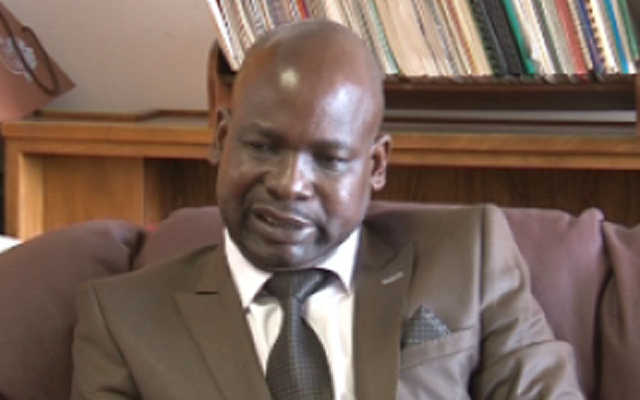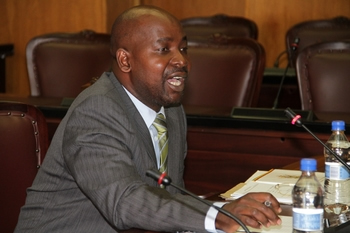EU ducks Zim’s US$50bn claim

Fidelis Munyoro Chief Court Reporter—
The European Union has ducked a potential $50 billion damages claim arising from the sanctions imposed on Zimbabwe for embarking on land reform to benefit the landless majority. This was after the General Court of the EU on Wednesday dismissed Zimbabwe’s appeal to have illegal sanctions imposed on the country by Western countries scrapped and have the bloc pay the $50 billion damages.
For a damages claim to succeed in the EU Court, the aggrieved party needs to prove unlawfulness of the embargo.
The Government had challenged the legality of the economic embargo at the General Court of the European Union in June last year.
The cocktail of sanctions are estimated to have cost Zimbabwe over $42 billion in lost revenue, in addition to contracting the economy by a factor of over 40 percent since the turn of the millennium.
Prosecutor-General Mr Johannes Tomana, then Attorney-General, plus 109 other individuals including top police and army officers and 11 companies, had asked the General Court of the European Union to nullify the sanctions order in a case they filed in 2012.
But the General Court ruled that Mr Tomana and his co-applicants were correctly identified as linked to President Mugabe’s government. The 28-member bloc has been gradually easing sanctions against top Zanu-PF officials, but left President Mugabe and his wife Dr Grace Mugabe on the blacklist.
The court ruled that there was adequate legal basis for the sanctions since the positions they held were such that it was legitimate to characterise them as leaders of Zimbabwe or as associates of those leaders and thereby to justify, on that ground alone, their being listed.
But legal experts said the matter has been overtaken by events since the 28-member bloc has changed its stance on Zimbabwe.
“It is a very disappointing outcome but hopefully the verdict has been overtaken by events obtaining on the ground,” said lawyer Mr Terence Hussein.
“Notably, the EU has since seen it fit to change its position on Zimbabwe, choosing engagement rather than confrontation.”
Another lawyer, Mr Misheck Hogwe, said the application to EU court was made in terms of the international law.
“The whole objective of the international law is to govern international relations, particularly between states,” said Mr Hogwe. “In view of the fact that the EU has softened up and is now receptive to dialogue as opposed to confrontation there is no reason to despair about the outcome of that matter.”
Mr Hogwe added that what is left now is for the Government to continue dialogue with EU with a view to ensuring that all restrictive measures are removed.
The legal challenge mounted by Zimbabwe, led by Mr Tomana, argued EU violated Chapter 7 of the United Nations Charter by imposing sanctions on the country. He further made the argument that the EU violated its own community legal order (its jurisprudence on natural justice). The EU had not given any of the listed individuals and companies a statement of reason for their listing.
It also had not afforded the victims opportunity to make representations challenging the grounds upon which their listing was based.
Zimbabwe contended that by non-adherence to international law and to EU’s own legal order the sanctions constituted unlawfulness and exposed the 28-member block to a damages claim.
In its judgment, the EU noted that the applicants had continued to pursue their application notwithstanding the suspension or removal of the embargo which had been effected over the past few years.
The court noted the applicants intended to prove that the sanctions had been unlawfully imposed on Zimbabwe from the beginning in 2002.









Comments